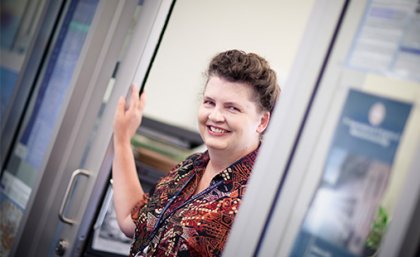New Research to Speed Up Treatments for MS

Complete the form below to unlock access to ALL audio articles.
Associate Professor Judith Greer from the UQ Centre for Clinical Research aims to develop mice with a functional human immune system.
Using mice that have no immune system of their own, researchers will allow their immune systems to rebuild using immune cells from people with MS.
“Current MS models used are limited as they are unable to imitate exactly how the human immune system responds in people with MS,” Associate Professor Greer said.
“Creating a functional human immune system within this model will allow us to better understand what is happening in MS and how it develops.”
Multiple sclerosis is caused when a person’s immune system attacks a fatty material called myelin, which protects nerve fibres.

It can affect the brain, spinal cord and optic nerves, causing problems with vision, balance, muscle control and other basic body functions.
The new model will also allow researchers to test potential drugs to gain a realistic idea of what treatments are more likely to work for people with MS.
“This will fast-track the process for new treatments considerably, ” Associate Professor Greer said.
Associate Professor Greer was awarded a $25,000 incubator grant from MS Research Australia for her research.
CEO of MS Research Australia Dr Matthew Miles said the research would improve scientists’ ability to test new treatments for MS and provide outcomes for people with MS sooner.
“MS Research Australia is very pleased to award this incubator grant to Judith Greer and her team,” he said.
There are 23,000 people living with MS in Australia and this number is increasing. People are more likely to be diagnosed in early adulthood and three quarters are women.



